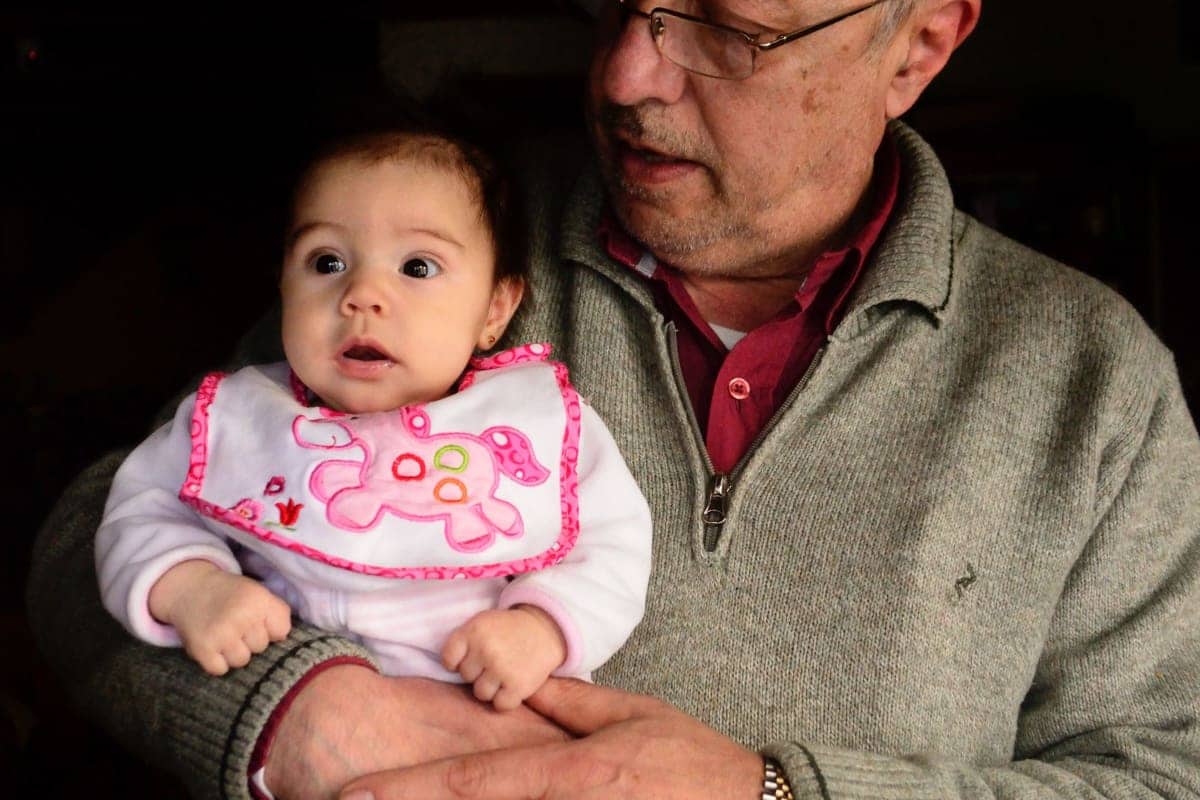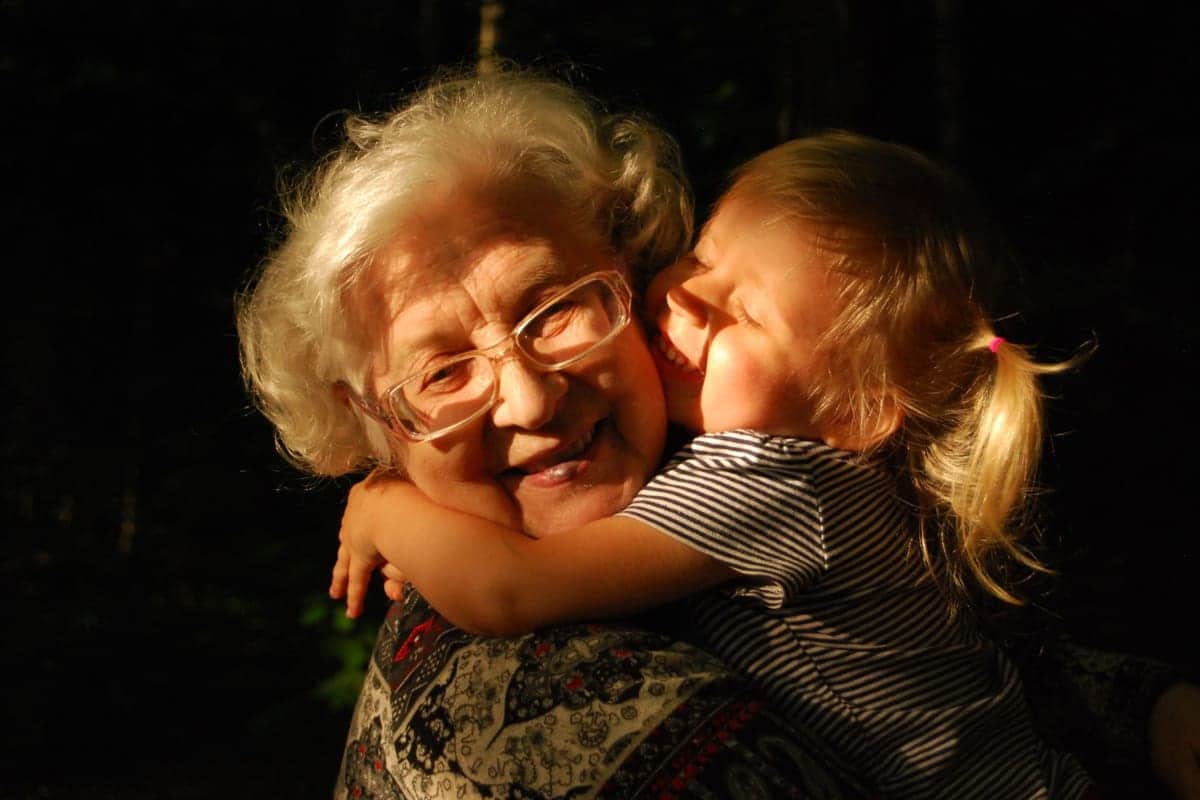Divorce is complex and messy, but so often society only thinks of it in terms of being complex and messy for the parents and children involved. But what about extended families? Grandparents care deeply about their grandchildren’s welfare. But grandparents often feel left out or confused as to what say in the matter they might have when their adult child divorces. What rights do grandparents have when it comes to custody cases in Washington State?
Parents have the legal right to raise and be involved in the lives of their own children, but grandparents are typically not afforded that same right. In some specific cases, grandparents may be awarded visitation rights in order to spend time with their grandchildren, but this is rare.
If a grandparent wishes to obtain custody of their grandchildren, then they may have more say in the custody case because they are directly requesting that the court consider them as custodial guardians. This type of request will only be considered if the parents are deemed unfit by the court to raise their child.
What this means is that unless a grandparent wishes to take legal steps to either receive visitation rights or custodial rights with their grandchild, they really don’t get a say in a custody arrangement, custody case, or in any details relating to their grandchild’s care in Washington State.
This can become very complicated, both legally and emotionally. In some cases, a bitter custodial parent may refuse to allow their children to see their ex’s parents, causing pain and sadness for the grandparents. They may refuse to allow an ex’s parents to even have contact with their children, including phone or video calls to maintain the grandparent-grandchild relationship.
Unfortunately, that will most likely not be a strong enough reason for a court to intervene and force a parent to allow visitation between their child and the child’s grandparents. Parental rights are protected in Washington State, and there are no binding laws around grandparent visitation rights. A grandparents’ desire to see their grandchildren will typically not be enough to override a parents’ wishes for how they raise their children. The court’s main goal is to maintain a healthy parent-child relationship, even during divorce proceedings. A court or judge will never terminate the rights of parents simply because a grandparent wants to have a say or feels they should have more regular contact with their grandchild.

If a grandparent does feel they have a strong legal case, they have two options. They can either petition the court for custody of their grandchild, or they can gain visitation rights or more regular contact through a parenting plan.
In order for the grandparent to petition for custodial rights of the children, they must prove that:
1. There is sufficient evidence to support that the child is in the care of an unfit parent, and therefore petition to terminate their children’s parental rights
2. It would be detrimental to the best interests of the child to remain with their biological parents
3. The grandparent has an established, close emotional attachment to the child, which establishes stability in the child’s life
4. The grandparent has the ability to provide a safe environment for the child
5. The grandparent has a willingness to assume full financial responsibility for the child.
6. There is no other person available to serve as the primary caregiver.
This is not an exhaustive list, but does give a clear guideline for factors that may play into a court’s decision to grant custody to a grandparent over a biological or adoptive parent. The burden of proof lies with the petitioner to establish each of these factors before the court grants him/her custody. If the court determines that the petitioner has met all of the above criteria, it will grant the petition for custody. However, if the court finds that one or more of the above criteria was not met, then the court will deny the petition for custody.
To gain visitation rights or modify a visitation schedule, a grandparent need only file a Motion for Modification of Parentage. This motion requires the petitioner to show the following:
1. There has been a material change in circumstances since the last custody determination.
2. The modification is in the best interest of the child.
3. The modification is necessary to promote the best interests of the minor child.
4. The petitioner has been given reasonable efforts at family reunification.
5. The petitioner has not engaged in domestic violence against the child.
6. The petitioner has not committed any criminal offenses involving the child.

Again, this is not an exhaustive list, but does give a sense of the seriousness and challenges of filing a petition to gain visitation rights as a grandparent. Custody proceedings can get very messy if a grandparent puts their own desires above the best interest of the child, or otherwise tries to build a false case against their adult child in order to gain physical custody or custody rights of their grandchildren.
However, in some cases this is necessary and it is in the best interest of the grandchildren to be placed in their grandparents’ care. If you have serious concerns about the well-being of your grandchildren, you should absolutely consult with a lawyer and find out the best course of action to ensure your grandchildren’s safety. An experienced family lawyer can help you make a wise decision about next steps to ensure that your grandchildren are in safe care. Their advice can help you set reasonable expectations around the legal process and outcomes, if you do have a case.
Torrone Law cares about your family and we will work to bring you back to wholeness and healing. Contact us to find out how our services can support bringing your family back together.
For answers to some common custody questions, check out our frequently asked questions below.
FAQ’s
Are there any laws that protect the rights of grandparents in Washington State?
There are no specific laws that grant any type of rights for grandparents with regard to their grandchildren.
What are the legal options for grandparents who want to stay involved in their grandchildren’s lives after the children’s parents divorce?
The only legal options are to file a petition for visitation, or file for custody of the children. These can be very difficult to obtain unless the grandparents and their lawyers can prove that the parents are unfit, that the children are being abused or kept in an otherwise unsafe home, or that it is in the child’s best interest to be in the custody of the grandparents.







